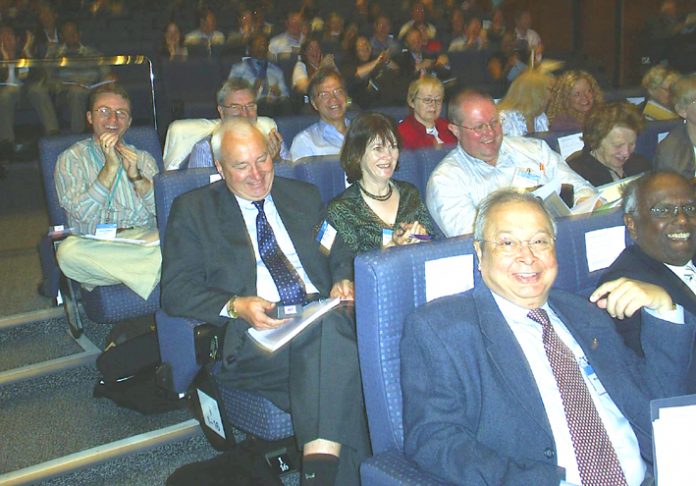DOCTORS at the Annual Representative Meeting of the British Medical Association in Edinburgh yesterday voted to stop the privatisation of the NHS, and voted against privately run polyclinics, and health minister Lord Darzi’s plan for London.
Motion 33 from the Agenda Committee states that ‘this government’s health care reforms have undermined and fragmented core NHS services in England by reconfiguring the NHS as a collection of profit-driven, competing enterprises and by diverting increasing levels of funding out of the public sector.
‘This meeting calls on the BMA to work with other organisations to keep NHS services within the public sector and to ensure that the public are informed of the detrimental effects to patient care.’
Moving the motion, Dr George Rae warned: ‘Private companies are chipping away at the NHS.’
He added: ‘The public are being kept in the dark on just how much money is being siphoned off to private companies.
‘We must prevail. We must be united in saying the future of the NHS delivery shall be based on collaboration and free at the point of need.’
Dr Gregor Venters from Scotland said: ‘The BMA should be part of a movement to prevent the commercialisation of the NHS.
‘We need to try and keep privatisation out of the NHS.’
The motion was passed with just a few votes against.
Dr Rae also moved a motion on behalf of the Agenda Committee on polyclinics, Motion 41.
Rae said: ‘We’re getting a precipitous rush – ie they are being imposed.
‘Many polyclinics are likely to be run by for-profit private companies.’
He added that: ‘This is another example of transferring public money into the pockets of private companies.’
Dr Paddy Glackin attacked remarks about doctors having ‘gentlemen’s agreements’ by health minister Ben Bradshaw.
Glackin said: ‘Things have come to a pretty pass when you have to explain solidarity and cooperation to a Labour minister.’
BMA Council Chairman Hamish Meldrum called on conference to refer back clauses in the motion.
These were clause 4, which states that the BMA’s Annual Representative Meeting believes that poly-clinics will undermine hospital services by duplicating some diagnostic and technical services already provided by consultant-led teams; a clause which said ‘they will adversely affect the training of junior doctors in hospitals’; and another clause which states ‘they will have an adverse effect upon delivery of health care services in urban and rural areas.’
Replying to the debate, Dr Rae called on the conference to oppose privatisation of primary care and the commissioning of primary care.
When it came to the vote, conference refused to accept references back on the clauses and voted overwhelmingly for the complete motion.
Conference went on to vote for Motion 42, calling for a rejection of health minister Lord Darzi’s ‘recommendations for health care in London’.
Moving the motion, Dr Chaand Nagpaul, from the GPs committee, said that ‘the proposals are putting forward polyclinics. They are proposals to close hospitals and close acute services with no surgical back-up.’
He said the plans meant ‘reducing access to GP surgeries and acute hospitals’.
He accused the government of proceeding with a sham consultation.
He said: ‘PCTs were planning sites for polyclinics before the consultation was even out.’
Speaking in support of the motion, Dr Jaswinder Bamrah, from the BMA Consultants Committee, slammed Darzi’s proposals, saying: ‘We should halt this major surgery on London.’
He warned: ‘All PCTs have been mandated to provide polyclinics.
‘Lord Darzi has put the NHS on the crossroads.
‘We are celebrating the 60th anniversary of the NHS.
‘Unchallenged, his proposals would gravitate it to an early retirement.’
